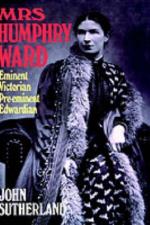|
This section contains 135 words (approx. 1 page at 300 words per page) |

|
Robert Elsmere created a sensation following a review by former prime minister William Gladstone in 1888, and Ward subsequently enjoyed great popular success. Victorian critics often challenged Ward's theoretical assumptions and arguments, but readers responded favorably to the combination of intellectual instruction, moral seriousness, and romantic appeal in her novels. As social attitudes and concerns changed in the Edwardian and Georgian eras of the early twentieth century, Ward's works were sharply criticized as didactic thesis novels displaying stereotypical characterizations and lacking humor. By the end of World War I, her works were generally considered anachronistic, their conservative moral code seeming remote from the preoccupations of postwar society. Her works remained little discussed and little read until the 1970s, when critics rediscovered in Ward's novels valuable documentary evidence of the intellectual life of Victorian England.
|
This section contains 135 words (approx. 1 page at 300 words per page) |

|


